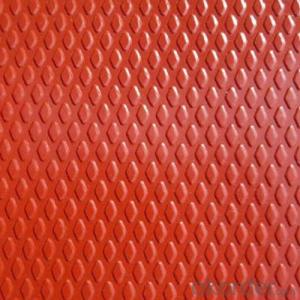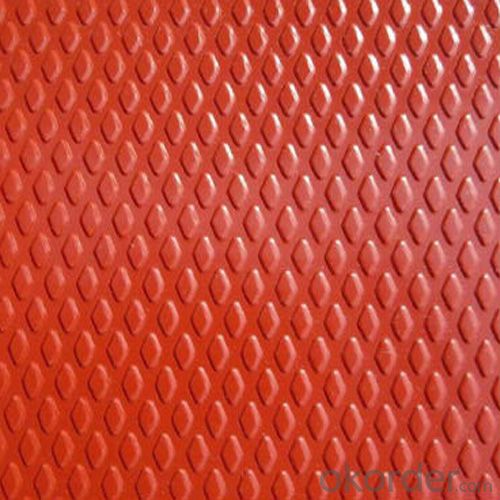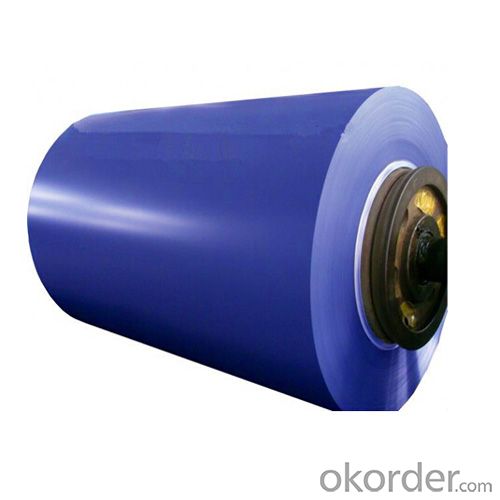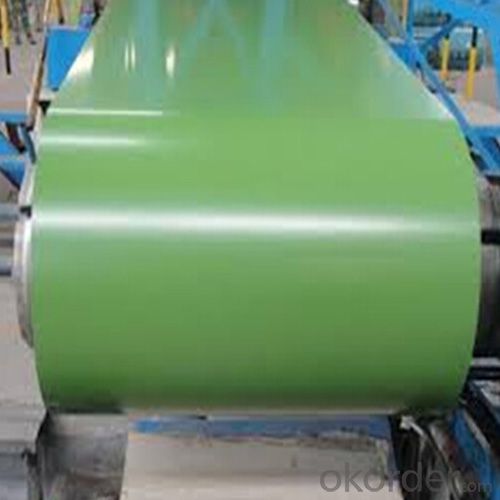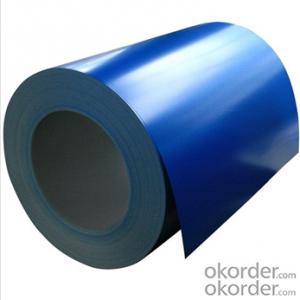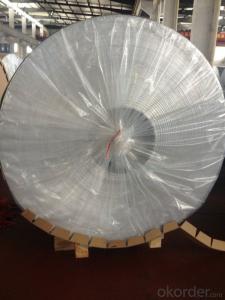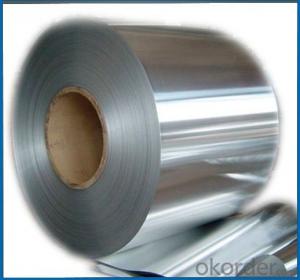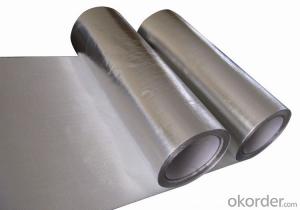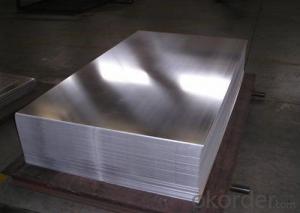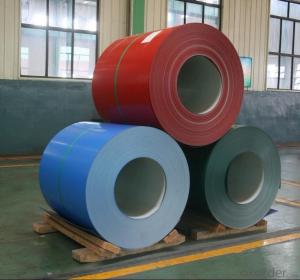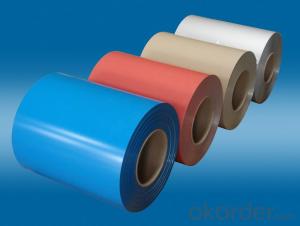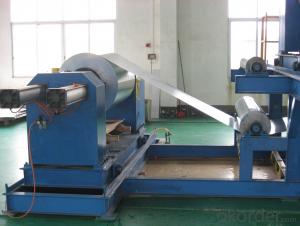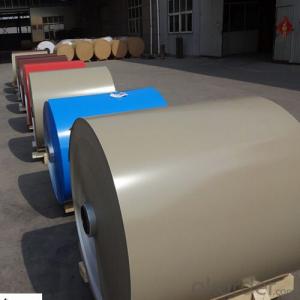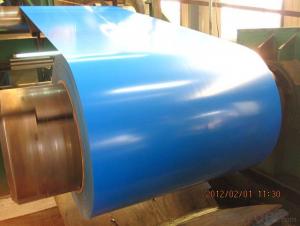5052 Aluminum Coil Manufacture for Exterior Color Coated Aluminum Sheet Coil
- Loading Port:
- Shanghai
- Payment Terms:
- TT OR LC
- Min Order Qty:
- 5 m.t
- Supply Capability:
- 10000 m.t/month
OKorder Service Pledge
OKorder Financial Service
You Might Also Like
Specification
1.Structure of Color Coated Aluminum Sheet Coil for Exterior Description:
We can produce aluminum sheet,color aluminum sheet and plastic composite panel base material. They are widely used in construction and decoration, hardware and electric appliances manufacture, automobile manufacture and other industrial and civil purposes, such as electronic capacitor, rice cooker, refrigerator, computer casting, lamp shade, air-conditioner, cosmetics cover and box, air-conditioner radiator, inner container of disinfecting cabinet, ceiling board, automobile motherboard, cover board and top board, etc.
2.Main Features of Color Coated Aluminum Sheet Coil for Exterior :
-----Aluminium sheets coils for curtain wall and ceiling
-----Aluminium sheets or coils for PCB base plate
-----Aluminium sheets or coils for reflector, name plates, advertising board, decorated wall
-----Aluminium sheets coil for ship
-----Aluminium sheets coils for foil
-----Aluminium sheets coils for precoating
-----Aluminium sheets and coils for industrials and other applications
3. Color Coated Aluminum Sheet Coil for Exterior Images:
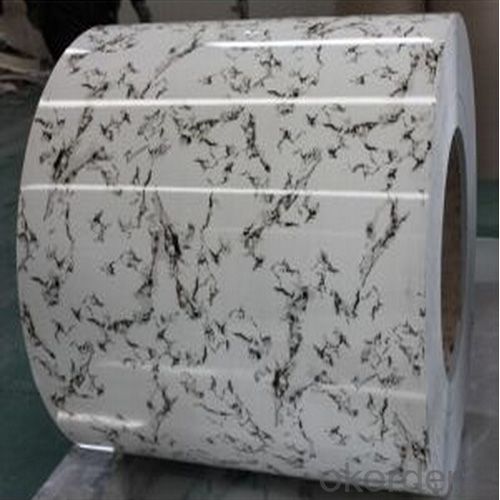
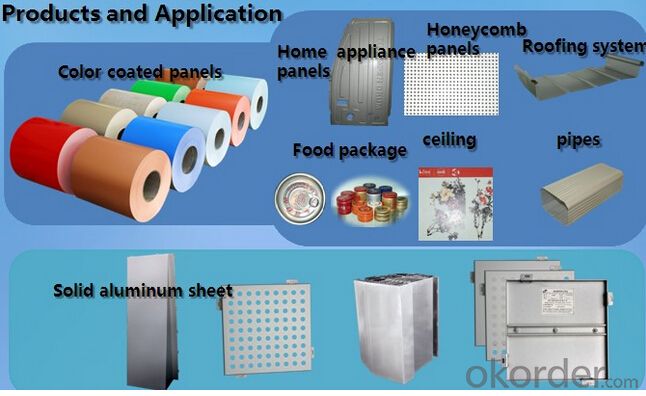
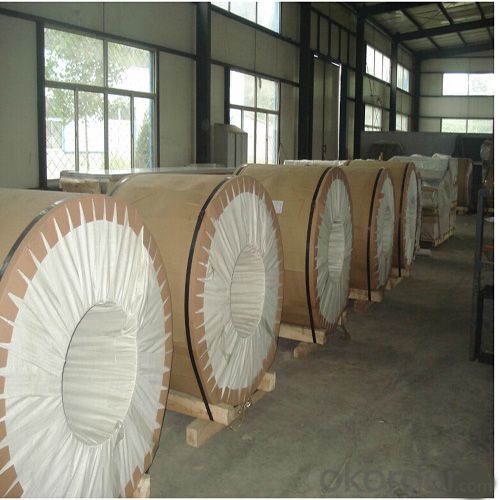
4. Color Coated Aluminum Sheet Coil for Exterior Specification:
| Alloy No. | Thickness (mm) | Width (mm) | Length (mm) | Temper | |
| A1050,A1060, A1070,A1100 | 0.2-100 | 20-2200 | 20-8000 | O,H12,H22,H14,H16,H18, H24,H26,etc | |
| 3A21,A3003,A3105,A3004 | 0.2-100 | 20-2200 | 20-8000 | O,H14,H18,H24,etc | |
| A5052 ,A5005,A5083,A5754 | 0.2-100 | 20-2200 | 20-8000 | O,H18,H24,H32,H34,H111,H112 ,etc | |
| A6061,A6082,A6063 | 0.2-200 | 20-2200 | 20-8000 | T4,T6, T651,etc | |
| A8011 | 0.2-100 | 20-2200 | 20-8000 | O,H12,H22,H14,H16,H18,H24,H26, etc | |
5.FAQ
Q1.How long have you been in this product?
A1:More than 10 years.
Q2. What's the minium quantity(MOQ)?
A2. 5 Metric tons
Q3. How long is shipping time?
A3. 7 (ready-made products)-25 days(OEM)
Q4. How do you guarantee the quality?
A4. 1. Cooperating and Exchaning experience with sevral quoted aluminum companies
2. Japanese and Swiss production line and skilled works (regular training and testing)
3. more than 10 years production experience.
Q5. Do you have after sale service?
A5. Yes. Any quality problem occurs within one year, pls take photoes,we will be responsible.
- Q: How do aluminum coils contribute to energy-efficient windows and doors?
- Aluminum coils contribute to energy-efficient windows and doors by providing excellent thermal conductivity and allowing for better insulation. The coils are typically used to create frames for windows and doors, and their high thermal conductivity helps to transfer heat or cold more effectively. This allows for improved energy efficiency as the frames can effectively trap heat inside during winters and prevent heat from entering during summers, reducing the need for excessive heating or cooling. Additionally, aluminum coils are durable and low-maintenance, making them a sustainable and long-lasting choice for energy-efficient windows and doors.
- Q: Are there any limitations to the minimum coil width of aluminum coils?
- Yes, there are limitations to the minimum coil width of aluminum coils. These limitations depend on various factors such as the type and thickness of the aluminum, the specific manufacturing process, and the equipment used. Generally, the minimum coil width is determined by the capabilities of the rolling mills or slitters used in the production process. These machines have certain minimum width settings that cannot be exceeded. Additionally, extremely narrow coil widths may pose challenges in terms of handling, transportation, and processing.
- Q: Are aluminum coils compatible with other materials?
- Yes, aluminum coils are compatible with other materials. Aluminum is a versatile and widely used material that can be easily integrated with various other materials in different applications. For example, aluminum coils can be used in conjunction with copper tubing in air conditioning and refrigeration systems to enhance heat transfer efficiency. Additionally, aluminum coils can be coated or laminated with other materials such as polymers or paints to provide additional protection against corrosion, improve aesthetics, or enhance specific performance characteristics. Therefore, aluminum coils offer compatibility with a range of materials, making them suitable for diverse applications in industries such as construction, automotive, aerospace, and more.
- Q: How to purchase PE polyester coated aluminum sheet and PVDF fluorocarbon coated aluminum coil?
- Both belong to color coated aluminum sheet and coil. Customers can purchase ordinary aluminum sheet or coil, and then go to special coating company to add PE polyester coating or PVDF fluorocarbon coating. The color is bright and quality is also very good. PE polyester coated aluminum and PVDF fluorocarbon coated aluminum coil has a wide range of usages: construction industry (aluminum-plastic panel, aluminum honeycomb, roof corrugated sheet, fireproof veneer, aluminum ceiling, shutter, rolling shutter door, garage door, awning, water gutter), electronic appliances (computer chassis, computer panel), lighting, furniture, solar reflector, air conditioning duct and the like. At present it is still applied in many areas including electronic appliance, instrument, lighting, packaging and house decoration.
- Q: How are aluminum coils protected against transportation damage?
- Aluminum coils are protected against transportation damage through various measures implemented by manufacturers and transportation companies. First and foremost, aluminum coils are usually packaged and stored in sturdy crates or pallets that provide a protective barrier against external impact and ensure stability during transit. These crates are often made of wood or metal and are designed to withstand the rigors of transportation. To further safeguard against damage, the coils are often wrapped in protective materials such as plastic or stretch film. This additional layer of packaging helps to prevent scratches, abrasions, and moisture damage during handling and transportation. The coils may also be secured within the crates or pallets using straps or bands to prevent movement and potential impact with other objects. Furthermore, manufacturers often utilize padding materials such as foam or cardboard inserts to create a cushioning effect within the packaging. These inserts help absorb shock and vibration during transit, reducing the risk of damage caused by impacts or sudden movements. Additionally, transportation companies play a crucial role in ensuring the safe transportation of aluminum coils. They employ specialized handling equipment such as forklifts or cranes to minimize the risk of mishandling and dropping the coils. Moreover, they carefully load and secure the coils within shipping containers or trucks, ensuring they are properly braced and immobilized to prevent shifting or rolling during transportation. In summary, aluminum coils are protected against transportation damage through the use of sturdy packaging, protective wraps, padding materials, and appropriate handling techniques. These measures aim to minimize the risk of scratches, dents, and other forms of damage caused by impacts, vibrations, or mishandling during transit.
- Q: How are aluminum coils tested for surface adhesion?
- Aluminum coils are tested for surface adhesion through various methods to ensure the quality and performance of the material. One common method is the tape test, where a piece of adhesive tape is applied firmly to the surface of the coil and then quickly removed. The adhesion is evaluated by assessing the amount of coating or paint that comes off with the tape. If excessive coating is removed, it indicates poor surface adhesion. Another method involves using a cross-cut or knife test, where a grid pattern is cut into the surface of the coil using a sharp blade. The grid is then covered with an adhesive tape and quickly removed. The adhesion is evaluated by examining the amount of coating or paint that is removed from the cut lines. If there is minimal or no coating removal, it indicates good surface adhesion. In addition, the pull-off adhesion test is often conducted using specialized equipment. This test involves attaching a device to the surface of the coil and applying a gradually increasing force until the coating or paint starts to detach. The force required to cause the detachment is measured, and it provides a quantitative measure of the surface adhesion strength. Overall, these testing methods help manufacturers assess the surface adhesion of aluminum coils and ensure that they meet the required standards for various applications, such as in the automotive, aerospace, or construction industries.
- Q: Can aluminum coils be used in the production of aluminum windows?
- Yes, aluminum coils can be used in the production of aluminum windows. Aluminum coils are often used as a raw material in the manufacturing process of aluminum windows. These coils are typically made from high-quality aluminum and are rolled into thin, flat sheets. These sheets can then be cut and shaped into the desired frame size and design for the windows. Aluminum is a popular material for window frames due to its durability, lightweight nature, and resistance to corrosion. The use of aluminum coils in the production of aluminum windows allows for efficient and cost-effective manufacturing processes while also providing a high-quality end product.
- Q: Can aluminum coils be used in electrical wiring applications?
- Yes, aluminum coils can be used in electrical wiring applications. Aluminum is a commonly used material in electrical wiring due to its excellent conductivity and cost-effectiveness. However, proper installation techniques and precautions are necessary to prevent potential issues such as corrosion and overheating.
- Q: How do aluminum coils impact energy efficiency?
- Aluminum coils play a vital role in enhancing energy efficiency across various applications, such as heating, ventilation, and air conditioning (HVAC) systems, refrigerators, and heat pumps. The outstanding heat transfer properties of aluminum are the primary reason for their positive impact on energy efficiency. The excellent heat conductivity of aluminum enables it to quickly absorb and release thermal energy. In HVAC systems, aluminum coils effectively transfer heat between the indoor and outdoor units. This efficient heat transfer reduces the system's workload, enabling it to operate more efficiently and consume less energy. Moreover, aluminum coils possess the advantages of being lightweight and having a large surface area, further enhancing their heat transfer capabilities. By reducing the overall weight of the system, their lightweight nature results in lower energy consumption. The increased surface area promotes better contact between the air and the coils, facilitating more effective heat exchange. Another benefit of aluminum coils is their resistance to corrosion, a common issue in HVAC systems. Corrosion can hinder the efficiency of heat transfer, leading to increased energy consumption. The corrosion resistance of aluminum coils ensures long-lasting performance, maintaining their efficiency and reducing the need for frequent maintenance or replacement. To summarize, aluminum coils significantly contribute to energy efficiency by facilitating efficient heat transfer, reducing the workload on HVAC systems, and minimizing energy consumption. Their lightweight nature, large surface area, and corrosion resistance further enhance their positive impact on energy efficiency.
- Q: Can aluminum coils be used in high-humidity environments?
- Yes, aluminum coils can be used in high-humidity environments. Aluminum is a corrosion-resistant metal, making it suitable for applications in areas with high humidity levels. The natural oxide layer that forms on the surface of aluminum acts as a protective barrier against moisture and prevents the metal from rusting or corroding. This makes aluminum coils a popular choice for HVAC systems, where they are exposed to moisture and humidity on a regular basis. Additionally, aluminum coils are lightweight, durable, and have excellent heat transfer properties, making them an ideal choice for various industrial and commercial applications in high-humidity environments.
Send your message to us
5052 Aluminum Coil Manufacture for Exterior Color Coated Aluminum Sheet Coil
- Loading Port:
- Shanghai
- Payment Terms:
- TT OR LC
- Min Order Qty:
- 5 m.t
- Supply Capability:
- 10000 m.t/month
OKorder Service Pledge
OKorder Financial Service
Similar products
Hot products
Hot Searches
Related keywords
